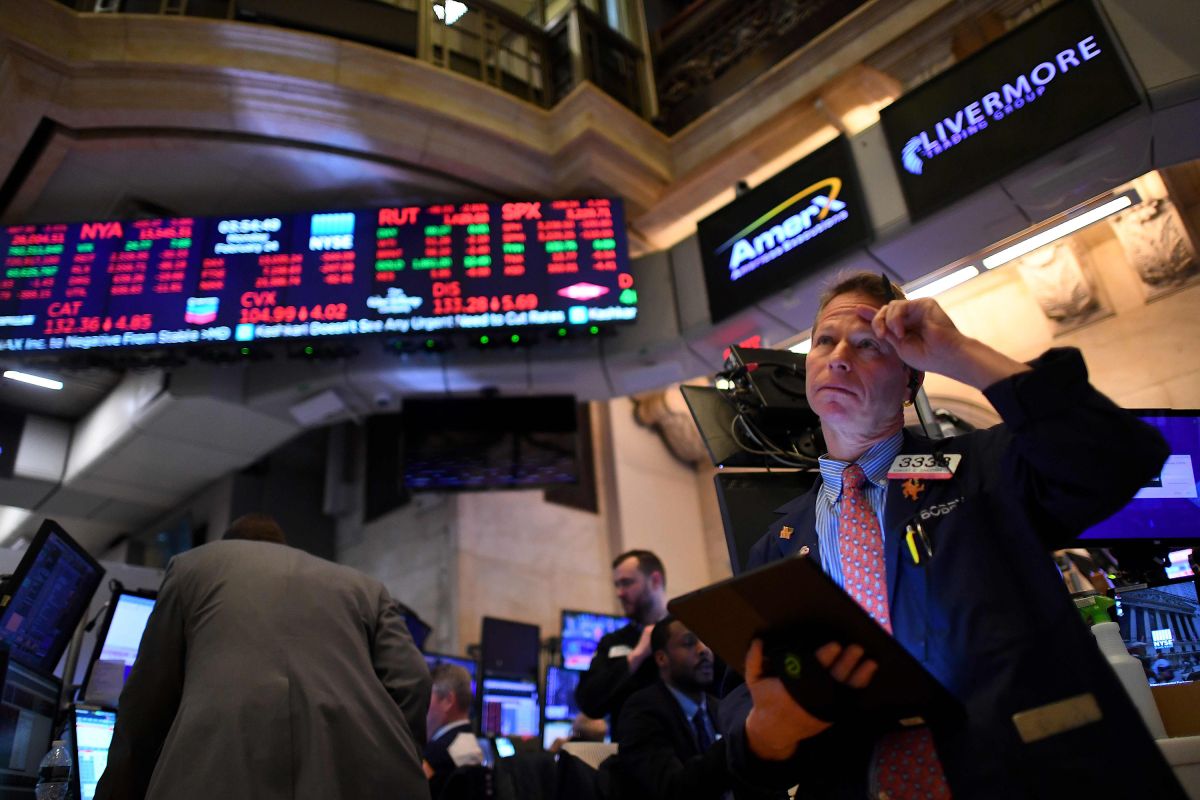Joel's note: The markets are volatile... and investors are scared. So today in Altimetry Daily Authority, let's look at the bigger picture to determine what you should be doing right now.
One of the market strategists that Rob and I most respect is financial-services firm Canaccord Genuity's Tony Dwyer.
Rob often talks about how in the midst of the Great Recession, Dwyer – then at FTN Midwest – nailed every move of the economy and market.
Similar to our process here at Altimetry, Dwyer looks at credit signals to better understand the economy. These caused him to become bearish heading into the Great Recession. And as those signals started to flip positively at the market bottom in early 2009, he was one of the first analysts to become bullish.
Since then – and since moving to Canaccord – Dwyer has consistently gotten the signals for this market right... both for being bullish and bearish.
A search through his headlines over the past few years might make him sound like a "permabull"... although he's been anything but that.
Like us, Dwyer is data-driven.
Last week on CNBC, he warned that the coronavirus outbreak could mean higher odds for a brief recession. You can't potentially shut down major cities – and the entire Chinese economy – without seeing some disruption in growth.
We said as much late last month in the February 26 Altimetry Daily Authority...
But is a sell-off like that a harbinger for the future of the market... or a buying opportunity? Of course the coronavirus outbreak will have an impact on Chinese and global economic growth for the first quarter of this year and likely the second quarter as well. But this is far more likely to be a transient issue rather than a structural impact on economic growth.
Said simply, the coronavirus isn't going to change how people structurally behave after the outbreak is contained.
People are still going to go on trips. Businesses are still going to want to have face-to-face meetings with clients. Semiconductor chips and consumer goods will still need to be made, bought, and sold.
But far more important, in the CNBC piece, Dwyer highlighted that coming out of this transitory issue, he'll be more bullish... not less bullish.
Why?
It's for much the same reasons we highlighted in our February 26 essay, and for reasons that have looked more positive over the long term since then.
We've regularly explained that the credit fundamentals for U.S. corporations and consumers do not point to risk for credit destruction. U.S. corporate-debt maturity schedules don't have imminent needs for refinancing that could be a catalyst for a deep recession and deep bear market.
Over the past two weeks, we've seen key factors that have supported this – as both we and Tony have highlighted...
The Federal Reserve cutting rates is incredibly bullish for the economy. The 10-year Treasury yield is now hovering around 50 basis points. Individuals and corporations will be looking to refinance at low interest rates... And once the coronavirus is behind us, they'll be using low rates to invest in growth.
Also, as we explained to our institutional clients yesterday in a repeat of an article we first published in 2015 during the midst of the oil collapse, oil price declines don't signal a recession. In fact, they're incredibly bullish for the economy – a decline in oil acts as a tax break for consumers and corporations. (You can read the full 2015 Valens Research piece right here. Keep in mind, it was written for institutional investors, so the content is a bit denser than what we publish here in Altimetry Daily Authority.)
This remains a "buy the dip" market. That being said, when markets historically come under this much pressure, it's generally not a "V-shaped" recovery. This is when the market sells off, and then immediately returns to its all-time high without any consolidation or re-test of lows.
Considering the market volatility, we aren't recommending readers run out and put all their money in stocks today because of the drop. As we said on February 26...
Could the market still go lower from here? Certainly. As legendary value investor Ben Graham said, "in the short run, the market is a voting machine." In this sense, the market behaves like a popularity contest in the short term. Stock prices change quickly based on the current sentiment and environment.
But averaging down into a down market lets you buy stocks you already like at a discount. Over the long term, Graham says that the market is a "weighing machine." The fundamentals will come through... which will drive this market higher.
Graham is thought of as the modern father of value investing, but he also understood the power of another tool: "dollar-cost averaging." As he explained in his famous book, The Intelligent Investor:
The practitioner invests in common stocks the same number of dollars each month or each quarter. In this way he buys more shares when the market is low than when the market is high, and he is likely to end up with a satisfactory overall price for all his holdings.
With dollar-cost averaging, investors don't try to market time and pick the perfect time to buy into a stock (or the market). By steadily buying over time, there are two benefits:
- As Graham says, investors are likely to end up with a good overall price... If they're purchasing the same amount each time they buy – when the stock is cheaper – they're buying more shares.
- The strategy also reduces the risk that investors let the classic behavioral finance issue of emotional investing take hold – they're always building and investing in the market.
In this way, investors don't risk missing out on the market moving higher and leaving money in cash, because they're waiting for the perfect opportunity to invest.
They don't "capitulate" and panic buy at the top... or panic sell at the bottom.
The question then becomes: Over what period do investors dollar-cost average to make sure to get money in the market to participate, but while still managing the risk of volatility?
If economic conditions are negative – with credit headwalls imminent, growth slowing, and valuations high – perhaps it makes sense to dollar-cost average over an 18 to 24 month period. The odds of a significant sell-off are higher, so spreading out buying will help reduce the short-term negative impacts.
On the other hand, if economic conditions are more positive – with no imminent credit issues, more opportunities for growth, and valuations not extended – a shorter period over six months might be more appropriate.
Today, while markets are panicking, credit conditions remain favorable and growth was accelerating before the coronavirus disruption. Valuations were already reasonable, and now have become better in this pullback. That sounds like the context for six-month dollar-cost averaging at worst, if not something more aggressive.
Now, dollar-cost averaging and "buying the dips" might sound contradictory...
But rather, if considering dollar-cost averaging over a given period of time (six months, 12 months, or even 18-plus months), then an investor could "buy the dip" by just taking the portion he was going to buy in a given month and buying it sooner than he'd normally schedule it, if the market goes lower.
As we said earlier, the current volatility is unlikely to yield a V-shaped recovery in which the market immediately rebounds. As Dwyer explained in a note yesterday:
The playbook on these type [of] drops are once you make the initial low, there is usually a multi-week rally that works off the oversold condition, then as the weaker economic and corporate news is announced the market tests the low. We see no reason to believe it is going to be different this time.
Said another way, the market retests the low, but it leads to a longer-term move higher.
If you're already overly cash-positioned – as we know many investors are – then this could be one of the biggest opportunities to dollar-cost average into the markets over six months, starting now. It's strategy to consider... and it's one we'll revisit here at Altimetry in the future.
The data say spreading dip buying for any incremental capital you have – as the market volatility continues in the near-term – is likely appropriate. And if you're already fully invested in equities with long-term money, then riding out the storm is the right thing to do.
You don't win in the stock market by selling when the market is down... You buy low and sell high.
Contrary to what this volatility is making you feel, the data say the last thing you should be doing is getting out of the market now.
Regards,
Joel Litman
with Rob Spivey
March 10, 2020





